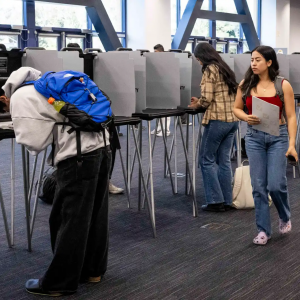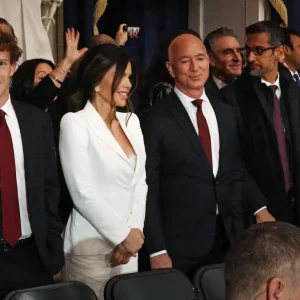
According to Malcolm X, “Racism is like a Cadillac, they bring out a new model every year.” Since the outlaw of slavery, racial discrimination taken on many different forms, from physical abuse, to legal segregation, to dog whistle politics, with the last yet to be prohibited. Today, dog whistle politics, a type of political speech that means “one thing to the general population but has a different meaning for a targeted” audience, continues to manifest itself through elements of the Republican Party. In particular, much of Donald Trump’s campaign has been based off coded racial rhetoric, using the power of language to mask his true intentions. However, Trump has made some crucial missteps along the way, exposing his racist beliefs. With Trump now the recipient of intense public scrutiny and backlash, it is the perfect time to steer America toward the path of racial equality.
“Make America Great Again.” These four words lay the foundation for Donald Trump’s campaign. At first glance, these words seem innocuous, coming across as a slogan that signals Trump’s desire for change in the country. However, when these words are placed in context with his vitriolic language towards immigration and his appeal towards “people wanting to take their country back,” it appears that Trump is appealing to white nationalists. Ian Haney-López of the Boalt Law School at the University of California, Berkeley, contends that Trump’s basic message “is a racial one: this is a white country, under threat from invading minorities.” “Make America Great Again” is particularly coded because it is veiled by plausible deniability, making no explicit mention of race. Rather, it implies that Trump is presenting his own vision of reforming America, visualizing a solidarity of people’s efforts to rebuild the country. Regardless, his slogan oozes of a vocal desire to recreate a white America. In fact, the use of the word “again” seems to reference a return to the pre-Civil War America that possessed a homogenous identity.
In addition to his political mantra, Trump’s use of the phrase “silent majority” is a historical term that exemplifies dog whistle politics and can be traced to Richard Nixon. First used in a political rally in 1969, Nixon portrayed it as an attempt to consolidate conservative voters under the Republican wing. However, Ron Brownstein of the National Journal contends that the expression refers to the white middle class, a group implicitly defined as “unyoung, unpoor, and unblack.” Donald Trump’s mention of the silent majority is no different. In particular, the whole concept behind the silent majority, an overlooked group of people that needs to take a stand and “reclaim the values…that once made the country great” is entrenched in his slogan, “Make America Great Again.”
However, Donald Trump has made some egregious errors in his campaign. Nixon, on the other hand, was able to successfully use dog whistle politics to widen the racialized dichotomies in society by appealing to white nationalists in a discreet manner. Although Trump has tried to do the same, unlike Nixon, his bombastic vehemence caused him to overstep racial boundaries. Calling Mexican immigrants “criminals, drug dealers, rapists” shattered his public relations image; major organizations such as NBC severed business ties with Trump because of his statements. His strong rhetoric exposed the public to his underlying racist beliefs, shedding light on his vision of creating a white identity for America. Fortunately, Trump’s missteps have publicized racial dog whistle politics, which have subsequently been condemned by the media and the public. The negative exposure he has received bodes well for civil rights activists. For us to bring an end to coded racial rhetoric, it is paramount that the media continues to expose this problem, attacking the issue from its core.
From Nixon to Trump, dog whistle politics has remained preserved, hidden from the view of the public. But Trump erred in denouncing minorities using derogatory language. With public sentiment rallying against him, now is the time to free racial groups from the iron grips of racialized politics and unchain them from the tactics of discriminatory politicians. Although Donald Trump’s campaign took several steps back, the opportunity for racial equality took one massive step forward.




